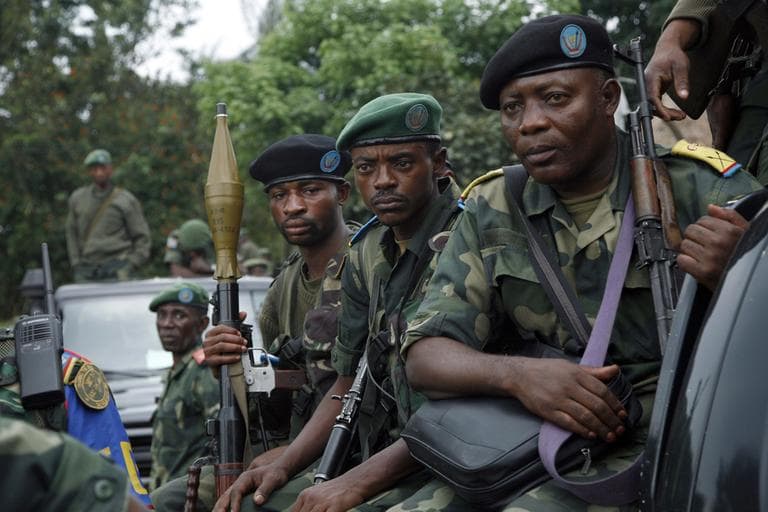Advertisement
Africa's Endless War
Rebels on the move in Congo. We’ll go there with NPR’s John Burnett. To Africa’s endless war.

In the heart of Africa, vast Congo has everything the world is going to need in this century. A huge rainforest. Enormous stretches of fertile land. The world’s biggest reserves of mineral ore. The hydro-power potential to light up a continent. And Congo has everything the world -and the Congolese- do not need. War. Mass rape. Chaos.
In the last week, rebel soldiers have been on the move again. It can all seem murky and far away. But little neighboring Rwanda – a darling of many Americans – is playing a big, controversial role.
This hour, On Point: Africa’s unending war, in Congo.
-Tom Ashbrook
Guests
John Burnett, National Public Radio correspondent who has been reporting from Africa.
Jason Stearns, a journalist who worked for ten years in the Congo. He writes the blog Congo Siasa. He's the author of Dancing in the Glory of Monsters: The Collapse of the Congo and the Great War of Africa.
Jennifer Cooke, director of the Africa Program at the Center for Strategic and International Studies.
Rep. Adam Smith, represents Washington's 9th district.
From Tom's Reading List
Foreign Policy "One of Congo's biggest eastern cities fell to a powerful rebel force on Tuesday, Nov. 20, in a war that may redefine the region but has produced little political action by the United Nations, the United States, and international powers that heavily support neighboring governments — notably Rwanda, a Western darling and aid recipient — that are backing the violence, according to U.N. experts. The fighting has displaced nearly 1 million people since the summer, and the battle for the city of Goma marks the latest episode of a long struggle by Rwandan-backed rebels to take control of a piece of the Democratic Republic of the Congo — a struggle the rebels are now decisively winning. The fighting has also highlighted the ineptitude of the United Nations mission, one of the world's largest and most expensive, charged with keeping Congo's peace."
New York Times "Regional leaders meeting in Uganda on Saturday called on Congolese rebels to “stop all war activities and withdraw from Goma,” but the rebels did not seem interested in that."
The Monkey Cage "What is striking and surprising here is just how easy it can be to take over some African states, or large parts of them. The post-independence historical record provides numerous examples where dozens or a few hundred armed men have done it. This is generally just assumed to be the way things are in Africa, but when you think about it it is actually really puzzling. Being the president in African countries (and many others besides) can be an incredibly lucrative deal. Why don’t these rulers, in their own self-interest, take some of that money and use it to build crack units, presidential guards, or strong and loyal army divisions that would protect their hold on power against two dozen putchists, or a hundred or a couple thousand rebels armed with rifles and maybe some mortars?"
This program aired on November 28, 2012.